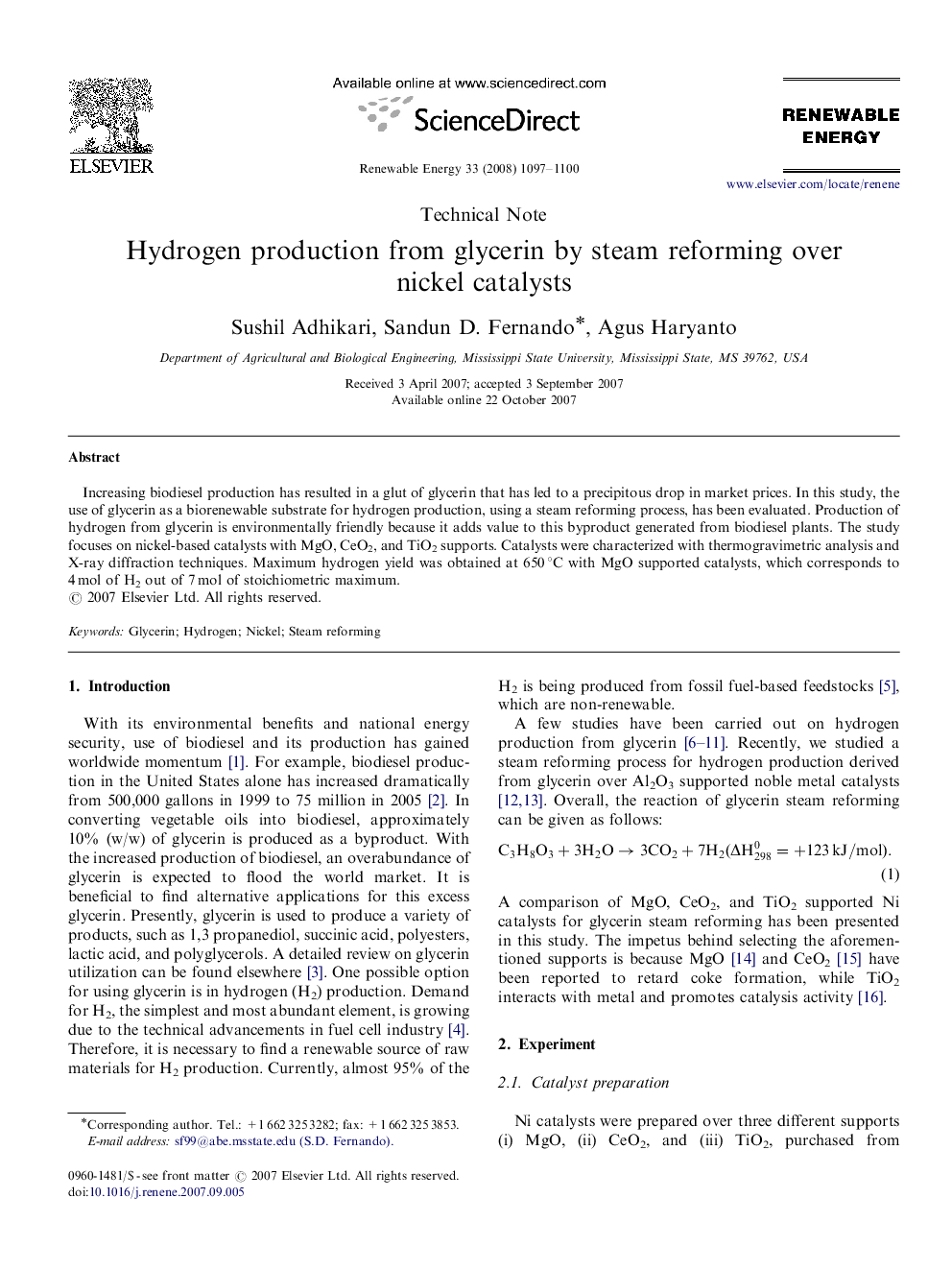| Article ID | Journal | Published Year | Pages | File Type |
|---|---|---|---|---|
| 302536 | Renewable Energy | 2008 | 4 Pages |
Abstract
Increasing biodiesel production has resulted in a glut of glycerin that has led to a precipitous drop in market prices. In this study, the use of glycerin as a biorenewable substrate for hydrogen production, using a steam reforming process, has been evaluated. Production of hydrogen from glycerin is environmentally friendly because it adds value to this byproduct generated from biodiesel plants. The study focuses on nickel-based catalysts with MgO, CeO2, and TiO2 supports. Catalysts were characterized with thermogravimetric analysis and X-ray diffraction techniques. Maximum hydrogen yield was obtained at 650 °C with MgO supported catalysts, which corresponds to 4 mol of H2 out of 7 mol of stoichiometric maximum.
Related Topics
Physical Sciences and Engineering
Energy
Renewable Energy, Sustainability and the Environment
Authors
Sushil Adhikari, Sandun D. Fernando, Agus Haryanto,
